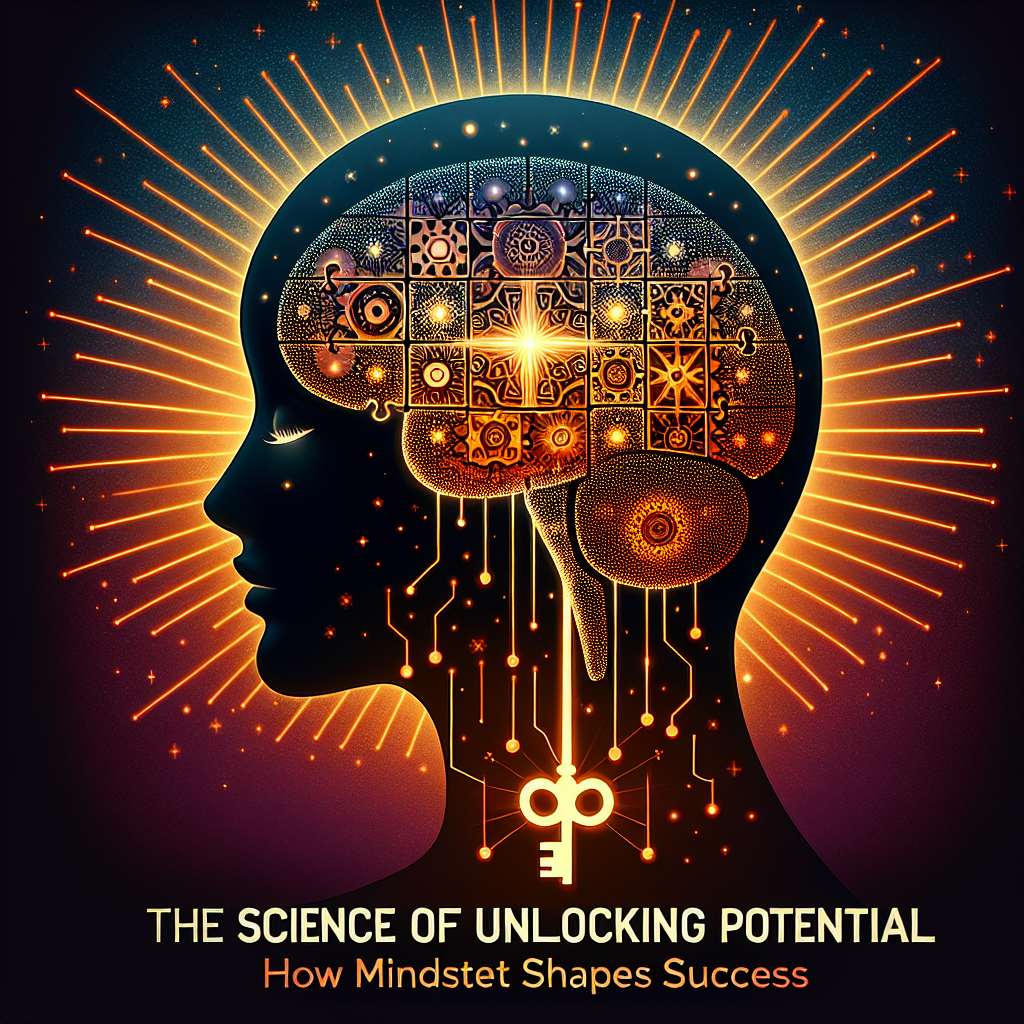In the journey of life, our mindset acts as the lens through which we view our challenges and opportunities. It shapes our perceptions, decisions, and ultimately, the paths we take toward success. But how exactly does our mindset influence our potential? This article delves into the fascinating science of mindset, exploring how fostering a growth mindset can unlock our true potential.
Understanding Mindset
At its core, mindset refers to our beliefs and attitudes toward ourselves and our capabilities. Psychologist Carol Dweck famously identified two primary types of mindsets: fixed and growth.
- Fixed Mindset: Individuals with a fixed mindset believe that their abilities and intelligence are static traits. They view failure as a reflection of their incapacity, leading to a fear of challenges and risk-taking.
- Growth Mindset: Conversely, those with a growth mindset believe that skills and intelligence can be developed through dedication and hard work. This perspective encourages resilience and a willingness to embrace challenges.
The Science Behind Mindset
Research has shown that mindset has profound implications for our success and well-being. Neuroscientific studies indicate that a growth mindset activates brain regions associated with learning and adaptive behavior. This means that viewing challenges as opportunities for growth can actually aid in the development of new neural pathways, enhancing our ability to learn new skills and adapt to changing circumstances.
Cognitive Flexibility and Problem Solving
A growth mindset fosters cognitive flexibility, which is the ability to adapt our thinking and behavior in response to new information or changing environments. When faced with obstacles, individuals with a growth mindset are more likely to brainstorm solutions and approach problems creatively, rather than succumbing to defeat.
Resilience and Perseverance
Resilience is another crucial aspect of success closely tied to mindset. Adopting a growth mindset promotes resilience, as individuals are more likely to bounce back from failures and learn from their experiences. Research has shown that those who exhibit resilience tend to experience better mental health and achieve greater long-term success.
Unlocking Your Potential: Strategies for a Growth Mindset
Now that we’ve established the importance of a growth mindset, how can we actively cultivate it in our daily lives? Here are some effective strategies:
1. Embrace Challenges
Rather than avoiding difficult tasks, challenge yourself to tackle them head-on. Viewing obstacles as opportunities for growth is key to developing resilience and boosting your confidence.
2. Learn from Criticism
Feedback, even when negative, can be incredibly valuable. Listen to constructive criticism and use it to refine your skills. Remember, learning is a process!
3. Celebrate Effort, Not Just Results
Focus on the efforts you put in, rather than solely on outcomes. By recognizing the hard work behind an achievement, you reinforce the value of dedication and continuous improvement.
4. Surround Yourself with Growth-Minded Individuals
Your social environment can greatly influence your mindset. Surround yourself with people who inspire you, challenge you, and encourage your growth journey.
5. Practice Self-Compassion
Be kind to yourself during setbacks. Understand that everyone encounters failure, and treat yourself with the same compassion that you would offer a friend in a similar situation.
Mindset in Action: Real-World Examples
Countless success stories illustrate the power of a growth mindset. Take the case of Thomas Edison, who famously failed thousands of times before inventing the light bulb. Rather than viewing each setback as a defeat, he embraced each failure as a valuable lesson in his journey toward success.
Similarly, renowned athletes like Michael Jordan faced numerous rejections and failures early in their careers. Their determination to improve and learn from their mistakes allowed them to reach the pinnacle of their professions.
The Role of Mindset in Organizational Success
The impacts of mindset extend beyond individual success; they significantly influence organizational culture and performance as well. Companies that foster a growth mindset tend to report higher levels of employee engagement, innovation, and collaboration.
Leaders play a crucial role in promoting a growth mindset within their organizations. By encouraging open communication, embracing experimentation, and recognizing employee efforts, leaders can cultivate an environment where individuals feel empowered to take risks and innovate.
Conclusion
At the heart of unlocking our potential lies the power of our mindset. Embracing a growth mindset allows us to navigate challenges with resilience, fosters cognitive flexibility, and enhances our creativity. By actively cultivating a positive mindset and creating supportive environments, we can not only unlock our personal potential but also contribute to a culture of growth and innovation within our communities and organizations. Remember, the journey to success is not a straight path; it’s a winding road filled with opportunities for growth and learning. So, embrace the challenges ahead, and who knows what you might achieve?
FAQs
1. What is a growth mindset?
A growth mindset is the belief that one’s abilities and intelligence can be developed through dedication and hard work, fostering resilience and a love for learning.
2. How can I develop a growth mindset?
You can develop a growth mindset by embracing challenges, learning from feedback, celebrating effort, surrounding yourself with growth-minded people, and practicing self-compassion.
3. Why is a growth mindset important for success?
A growth mindset encourages resilience, creativity, and problem-solving, all of which are essential for overcoming obstacles and achieving long-term success.
4. Can mindset change the way I approach failures?
Yes! A growth mindset shifts your perspective on failure, allowing you to view it as a learning opportunity rather than a setback.
5. How does organizational culture affect mindset?
A positive organizational culture that promotes a growth mindset leads to higher employee engagement, innovation, and overall success by encouraging collaboration and risk-taking.





